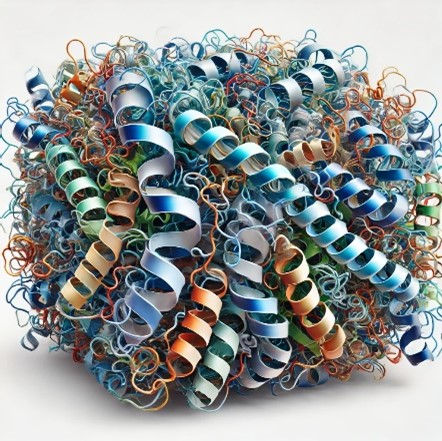Can gut microbiota transfer improve therapy in cancer?
- Rita

- Nov 18, 2021
- 3 min read
Updated: Dec 10, 2021
Researchers at the National Cancer Institute (NCI), in collaboration with the UPMC Hillman Cancer Center at the University of Pittsburgh, show in a study published in February 2021 in Science[1] that patients with advanced melanoma respond better to immunotherapy due to Fecal microbiota transplants.
Immunotherapy
Recently, immunotherapy has become an important therapeutic plan in many types of cancers. It consists of targeting with an antibody, a protein responsible for cancerous progression to neutralize it. Specifically, immunotherapy with anti-PD-1 (an immune checkpoint inhibitor which allows the immune system to overcome the blockage of attacking tumor cells), has been shown to be efficient in different cancers. However, a fraction of patient is refractory to treatment; we are thus in permanent need to find new therapies.
Indeed, 40% of patients with advanced melanoma (skin cancer) respond well to immunotherapy drugs (monoclonal antibodies) targeting PD-1 and PD-L1 (programmed cell death protein). However, some patients develop resistance to PD-1 therapy, due to tumor-intrinsic regulators but also to tumor-extrinsic regulators, such as the gut microbiome.

The study - Gut microbiota in cancer therapy
In Davar et al. study, a transplant of fecal microbiota was performed from patients who showed clinical benefits to immunotherapy, to patients who initially did not respond well to this therapy. The results suggest that having certain fecal microorganisms in the colon, can influence and help the immune system recognize and kill cancerous cells.
This study is one of the first to demonstrate that the gut microbiome composition has an effect on therapy response and altering it. By introducing certain strains of bacteria, it can augment therapeutical efficacy. This implies that the composition of the gut microbiome has an effect on the immune system and can regulate its response to more conventional therapies. It also means that the gut microbiome can change the tumor microenvironment to make it more vulnerable to the immune system. Indeed, it has also been shown that in melanoma-bearing mice, the administration of a certain gut microbiota improves the efficacy of anti-PD-1 therapy[2].
The clinical study
To check the safety of fecal transplantation, a group of 15 patients was treated with conventional immunotherapy (immune checkpoints inhibitors) for advanced melanoma (pembrolizumab (Keytruda) or nivolumab (Opdivo)). This treatment was not efficient for these patients. So fecal microbiota was obtained from patients who had advanced melanoma and responded well to pembrolizumab and was transplanted in refractory-to treatment patients. 6 out of the 15 patients who initially did not respond to treatment showed a tumor reduction and a long-term stabilization of the tumor progression. In these 6 patients, researchers observed an increase of bacteria associated with the activation of CD8+ T cells (a group of immune cells). They also showed a decrease in immune molecules associated with resistance to immunotherapy (less interleukine-8 expressing myeloid cells (involved in immunosuppression)) and an increase of biomarkers related to immune response.

Perspectives
Larger studies should be performed on a bigger number of patients, to determine, which groups of gut microbiota is implicated in this phenomenon and to determine biomarkers to select patients on whom this transplant is beneficial.
Subscribe to NETO Innovation webpage for more insights on healthcare and innovative technologies.
Follow us on social medias and keep up to date with our latest news:



[1] Davar D, Dzutsev AK, McCulloch JA, et al. Fecal microbiota transplant overcomes resistance to anti–PD-1 therapy in melanoma patients. Science. February 4, 2021.
[2] Routy, E. Le Chatelier, L. Derosa, et al. Gut microbiome influences efficacy of PD-1-based immunotherapy against epithelial tumors. Science 359, 91–97 (2018)
[3] Biorender.com




Comments